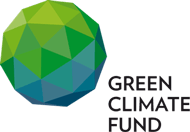 At the 9th Board meeting of the Green Climate Fund (GCF), which concluded last week in South Korea, seven entities were approved to pass through funding proposals by mid-year. However, the decision was criticised over the lack of transparency and stakeholder input in the process. The Board also adopted rules to screen project proposals but failed to exclude funding for fossil fuels. Expectations are now on countries to sign off the remaining US$4.5 billion for the fund that has been pledged in November 2014 ahead of the 30 April deadline.
At the 9th Board meeting of the Green Climate Fund (GCF), which concluded last week in South Korea, seven entities were approved to pass through funding proposals by mid-year. However, the decision was criticised over the lack of transparency and stakeholder input in the process. The Board also adopted rules to screen project proposals but failed to exclude funding for fossil fuels. Expectations are now on countries to sign off the remaining US$4.5 billion for the fund that has been pledged in November 2014 ahead of the 30 April deadline.
From 24-26 March the GCF Board held its 9th meeting in Songdo, South Korea. The Board had a lot on its plate for a three day discussion, which led many issues to be deferred until its next meeting in July. However, conclusions were made on several vital items to approve first funded projects and programs ahead of the Paris climate negotiations.
A historic decision was taken by accrediting the first seven implementing entities (IEs) to access the Fund’s resources for projects. They include two national (Centre de Suivi Ecologique from Senegal, PROFONANPE from Peru) two regional (Secretariat of the Pacific Regional Environment Programme, Acumen) and three international entities (Asian Development Bank (ADB), German Development Bank (KfW) and UNDP).
However, the decision to approve the entire batch of applications at once raised criticism over the lack of transparency in the process, including the secrecy over the identity of the applications ahead of the meeting, the lack of disclosure about the assessment process, and the overall lack of stakeholder input in the process. This is particularly important as both, ADB and the KfW intend to develop large scale projects and activities in the high environmental and social risk category.
The second vital decision, which came after an extended and diligent discussion, was the adoption of the initial investment framework. The framework is an indispensable element of project development under the Fund’s auspices that provides the criteria which will screen project proposals. The decision was heavily criticized because the Board failed to exclude fossil fuel projects from the Fund’s support.
The next crucial step for countries will be to deliver the contributions they have pledged in the November 2014 pledging session. So far only about 1 % has been legally committed. The approaching deadline of 30 April 2015 gives countries only a month longer to sign off the remaining US$4.5 billion for the fund to become officially effective.
For more details on specific decisions, read our report.






